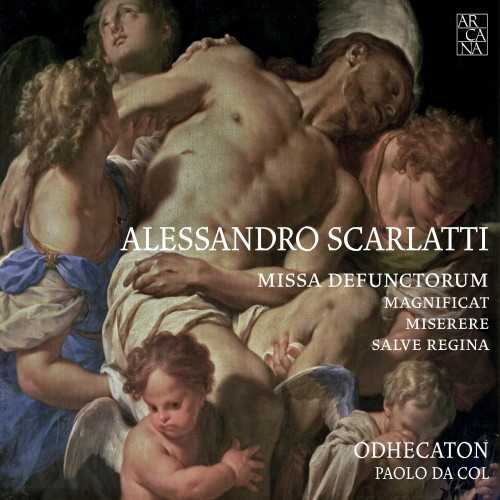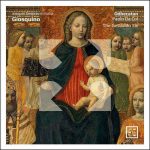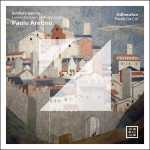
Composer: Alessandro Scarlatti
Performer: Odhecaton
Conductor: Paolo Da Col
Format: FLAC (tracks)
Label: Arcana
Release: 2016
Size: 1.29 GB
Recovery: +3%
Scan: yes
Alena Dantcheva – soprano
Jennifer Schittino – soprano
Alessandro Carmignani – controtenore
Matteo Pigato – controtenore
Gabriel Jublin – controtenore
Andrea Arrivabene – controtenore
Gianluigi Ghiringhelli – controtenore
Renzo Bez – controtenore
Alberto Allegrezza – tenore
Gianluca Ferrarini – tenore
Vincenzo Di Donato – tenore
Paolo Fanciullacci – tenore
Giovanni Dagnino – basso
Enrico Bava – basso
Marcello Vargetto – basso
Anaïs Chen – violino
Hedwig Raffeiner – violino
Marc Vanscheeuwijck – basso di violino
Giangiacomo Pinardi – arciliuto
Liuwe Tamminga – organo positivo
Paolo Da Col – Direttore
Missa defunctorum:
01. I. Introitus
02. II. Kyrie
03. III. Graduale
04. IV. Sequentia (Dies irae)
05. V. Sequentia (Lacrimosa)
06. VI. Offertorium
07. VII. Sanctus
08. VIII. Agnus Dei
09. IX. Communio
10. Salve Regina
11. Miserere
Magnificat:
12. I. Magnificat
13. II. Quia respexit
14. III. Quia fecit
15. IV. Fecit potentiam
16. V. Deposuit potentes
17. VI. Esurientes implevit bonis
18. VII. Sicut locutus est
19. VIII. Gloria patri
This recording is a discovery of Alessandro Scarlatti’s heretofore unknown sacred music, where Renaissance tradition meets Baroque sensibility for a unique and compelling recording. At the core of Odhecaton’s latest offering is the Missa defunctorum for four voices and basso continuo. It is in this magnificent score – recorded for the first time using the critical edition of Luca Della Libera – that primarily contrapuntal writing gives way to Scarlatti’s stylistic choices of great expressivity and rhetorical force, such as in the case of the astonishing Lacrimosa. The Miserere is also recorded for the first time. Written for nine voices for the Sistine Chapel, the score follows Allegri’s model only outwardly; Scarlatti, in fact, moves steadily away from it through his harmonic originality, formal richness, and expressivity. The Magnificat displays a unique synthesis of the Palestrinian model and the expressive language of the eighteenth century. In this score, Scarlatti exploits the great wealth and variety of the Marian text, particularly in the relationship between words and the emotional and descriptive spheres.



